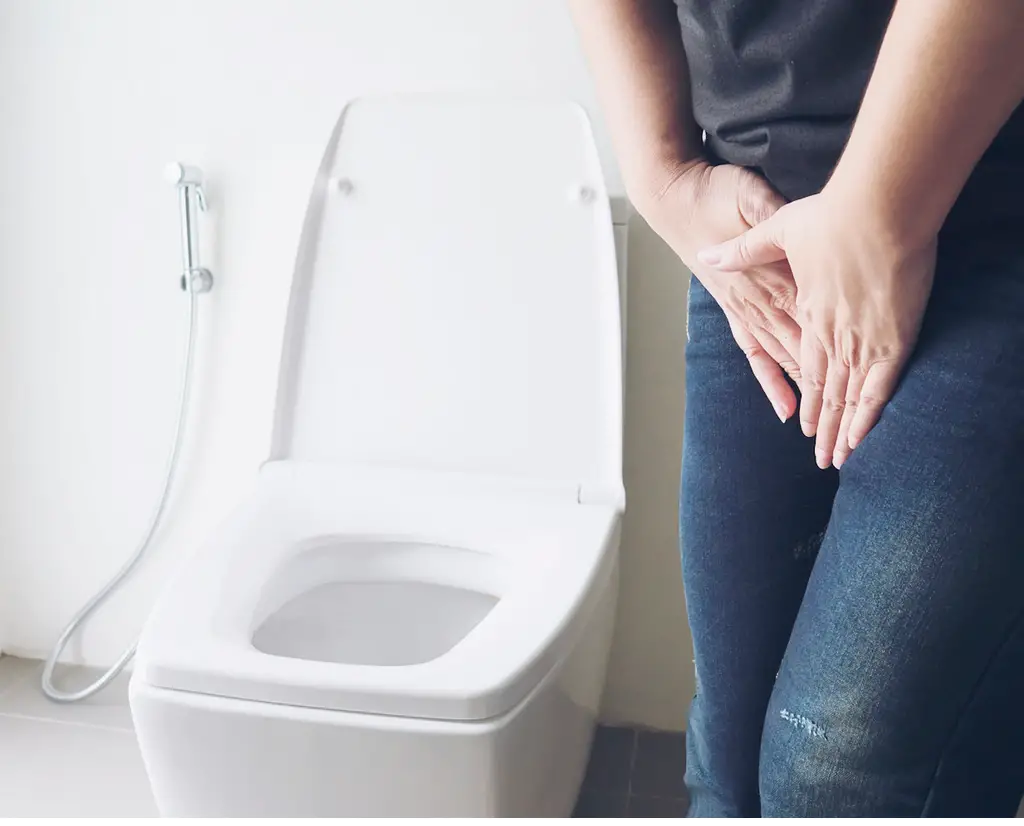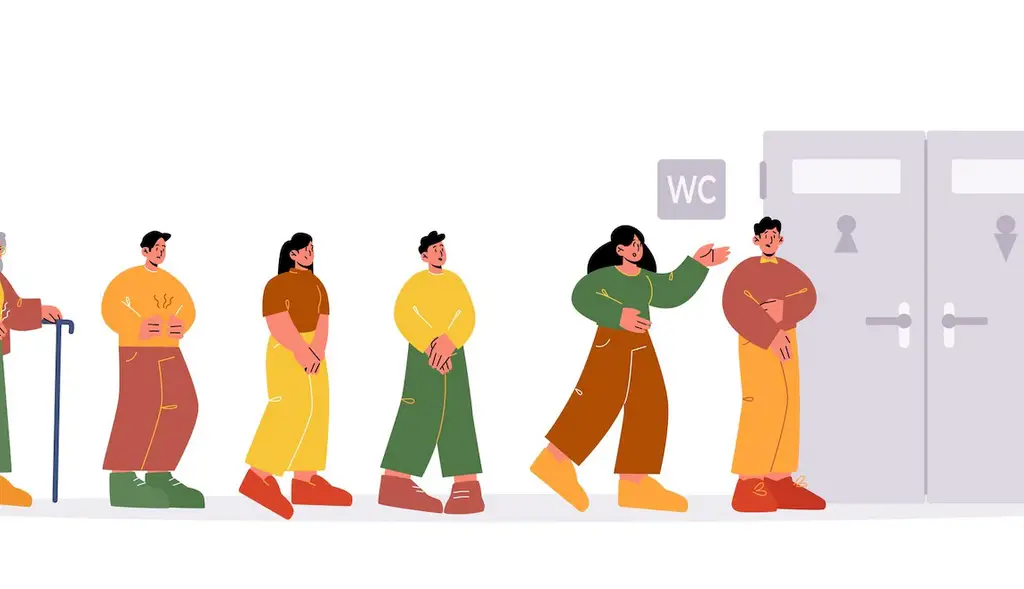Intermittent fasting (IF) is an eating pattern that involves alternate periods of fasting and eating. The IF protocol most people follow involves a 16-hour fast from dinner to lunch the following day, followed by an 8-hour window where you can eat again.
It’s not uncommon to urinate frequently during IF. In fact, it’s quite common for your body to release excess water during fasting.
When your body senses a lack of food and energy, it initiates a process known as gluconeogenesis, or the creation of new glucose from stored sources like amino acids, lactic acid, and glycerol.
There are several reasons why you might pee so much during intermittent fasting.
Why Do I Pee So Much During Intermittent Fasting?

If you’re frequently urinating during your IF fast, you’re not alone. Many people report frequent urination while fasting, especially in the beginning. In fact, you may notice that you’re urinating more often than normal, even when you’re not fasting.
This phenomenon is known as polyuria, which is a condition in which your body excretes an excessive amount of urine. While polyuria can occur for a variety of reasons, frequent urination is often a side effect of IF.
There are a couple of reasons why you could pee so much during intermittent fasting. These include:
1. You’re Losing Excess Water Weight
When you’re fasting, you’re consuming fewer calories than usual, which may prompt your body to shed excess water weight in order to conserve energy. The more weight you lose, the more water your body will release.
If you notice that your clothes feel looser, you may have lost significant water weight. Your urine volume may also increase as a result, so be sure to drink plenty of water to compensate for the increased urination.
2. Your Body Is Releasing Toxins
Fasting is an effective way to promote detoxification, so you may notice that you’re frequently urinating when you’re fasting. Some people experience detox symptoms such as nausea, cramping, and headaches, but many people simply urinate more frequently as time passes.
There’s no need to worry if you notice an uptick in urination while fasting. Your body is simply flushing out toxins that would normally be stored in your organs.
3. Your Body Is Burning Fat for Fuel
Your body metabolizes fat for energy during fasting periods, which can cause excess urination. If you notice that you’re frequently urinating during your fasting periods, be sure to keep an eye on your daily water intake.
If you don’t stay hydrated, you risk getting dehydrated, which can pose a serious health threat.
4. Don’t Be Alarmed; This Is Normal
Some people are startled when they frequently urinate during a fast. However, this is a normal side effect of fasting. While it may be alarming at first, you can relax knowing that your body is simply shedding excess water weight and releasing toxins.
How to Deal with the Urge to Pee While Fasting
If you’re frequently urinating during your fast, there are several ways to manage the urge to urinate.
- If you’re experiencing mild discomfort, try drinking more water.
- If you’re worried about becoming dehydrated, you can also try taking a mineral supplement to ensure that your body has what it needs to stay hydrated.
- If you experience pain or discomfort while fasting, you should try taking a supplement like turmeric to reduce inflammation.
- If you notice that you have trouble concentrating and staying productive while fasting, you may want to try drinking more water and taking a multivitamin to ensure that your body has what it needs to function optimally while you’re in a fasting state.
Does Intermittent Fasting Cause You to Urinate More?

Intermittent fasting can increase your daily water needs. This is because when you fast, your body goes into a “starvation mode” and starts to conserve energy as it naturally tries to find any available food.
In this state of starvation, your kidneys start to hold onto water, which can lead to you urinating more than usual.
It’s important to drink lots of water when you are fasting, which will help relieve the extra strain on your kidneys. You should also make sure that you are eating enough calories so that your body doesn’t have to work as hard in order to maintain itself.
If you do experience more frequent urination while fasting, don’t worry – it’s normal! And just remember: if it makes you feel better, then it’s worth drinking plenty of water while doing so!
If you experience an increase in urination during intermittent fasting, try drinking more water and taking a multivitamin supplement to ensure that your body has what it needs for optimal function while in a fasted state.
Is It Normal to Pee a Lot When Intermittent Fasting?
As we’ve already established, it’s normal to urinate more frequently during a fast. This is because your body is releasing excess toxins that are stored in your fat cells. This can cause you to feel somewhat dehydrated, which may lead you to drink more water than usual.
As long as you’re drinking plenty of water and taking a multivitamin supplement, however, you shouldn’t experience any problems with urination when intermittent fasting.
What Happens to Your Body When You Fast for 16 Hours?

When you go without food for 16 hours, your body goes into a state of starvation. Your metabolism slows down, and your body starts to conserve energy to survive. You may start to feel tired and weak, and your muscles may ache. You may even start to experience cognitive side effects like confusion, disorientation, or memory loss.
In addition, when you go without food for 16 hours, your body releases the hormone cortisol. Cortisol is a stress hormone that can suppress the immune system, making you more vulnerable to illnesses and infections.
Finally, fasting for 16 hours can cause dehydration. Your body has to work extra hard to digest and process food when you’re fasting for 16 hours, so it will naturally lose more water than usual.
Your body adapts to intermittent fasting by slowing down your metabolic rate and reducing the amount of calories you need to eat in order to survive.
This is why it’s important to drink plenty of water while fasting, so your body can access all the nutrients it needs to function properly.
Does Fasting Affect Urine?
Fasting can affect your urine in several ways.
- First, it can change the volume and color of your urine.
- Second, it can make your urine more concentrated, which may leave you with a strong odor.
- Third, fasting can cause changes in the composition of your urine, which may result in a variety of different odors.
- Fourth, fasting can reduce the amount of salt and water you’re excreting through your kidneys, which may lead to dehydration.
- Fifth, fasting can also reduce the amount of fluid in your blood, which may increase the risk of dehydration.
- Sixth, fasting may increase urinary tract infections by making bacteria more resistant to antibiotics because they have fewer nutrients to feed off.
- Seventh, fasting may alter how the body processes medications so that they aren’t absorbed as effectively.
- Finally, fasting can make it harder for you to detect when you’re becoming dehydrated or ill because ketones are produced instead of glucose in the absence of food. This is why it’s so important to drink plenty of fluids while on a fast or in any other situation where you’re not eating regularly.
Bottom Line
Urinating frequently while fasting is normal, but that doesn’t mean it’s enjoyable. If you find that you’re experiencing too much discomfort or pain, you can always break your fast and resume eating normally.
If you’re worried about the amount of water you’re consuming, you may want to try a few tricks to minimize your urination. You can also drink more water during your non-fasting hours to help your body reduce the amount of water it releases.















